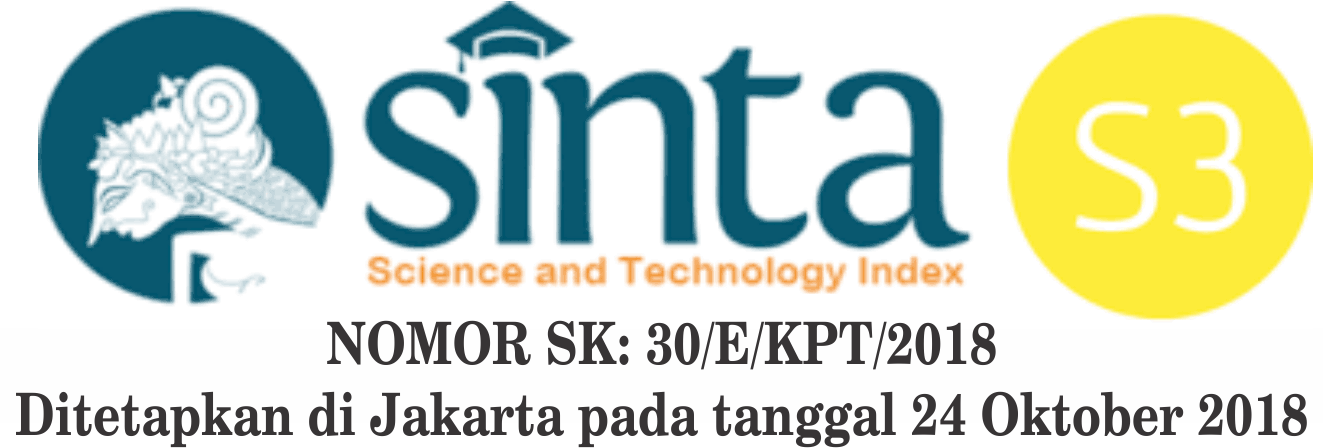Kampung MATFA : Otoritas Tuan Iman dan Budaya Komunal
Abstract
This study describes the authority of Tuan Imam and the communal culture practiced in the Kampung MATFA (Majelis Taqlim Fardhu Ain) Langkat District of North Sumatra. This research uses qualitative research methods with data collection techniques through observation, interviews, and literature study. The results of this study indicate that the Kampung MATFA implements a communal system in its social, cultural and economic activities. In addition, there is no private ownership that is shared ownership based on spiritual teachings delivered by the leader. The conclusion in this study is that the leader of Kampung MATFA, Tuan Imam, has the authority to manage his congregation by building a communal culture in maintaining its existence as a charismatic leader and his congregation for survival.
Keywords
Full Text:
PDFReferences
Abdulllah, I. (2006). Konstruksi dan Reproduksi Kebudayaan. Yogyakarta: Pustaka Pelajar.
Arifin, I. (1993). Kepemimpinan Kyai : Kasus Pondok Pesantren Tebuireng. Malang: Kalimasaheda Press.
Azra, A. (1997). “Pesantren: Kontinuitas dan Perubahan”, sebagai “KataPengantar” dalam Madjid, Nurcholish. 1997. Bilik-Bilik Pesantren. Jakarta: Penerbit Paramadina
Bourdieu, P. (2012). Arena Produksi Kultural: Sebuah Kajian Sosiologi Budaya. Terjemehan Santosa, Yudi. Bantul: Kreasi Wacana
Esman, M.J. (1972). The Elements of Institution Building dalam Joseph W. Eaton (ed), Institutional Building and Development. California: Sage Publications, Inc
Geertz, C. (1981). Abangan, Santri, Priyayi dalam Masyarakat Jawa, Jakarta: Dunia Pustaka Jaya
Jati, W. R. (2016). Memaknai Kelas Menengah Muslim Sebagai Agen Perubahan Sosial Pilitik Indonesia. Al-Tahrir, Vol.16 No.1, 133-151.
Koentjaraningrat. (1979). Pengantar Ilmu Antropologi. Jakarta: Aksara.
Mc Adam, D. d. (1997). Special Movement: Reading on their emergence, mobilization and dynamic. US: Roxbury Publishing Company.
Mc Carthy, John D. dan Mayer N. Zald. (1977). “Resource Mobilization and Social Movement: A Partial Theory,” dalam American Journal of Sociology 6 (4), 1212-1241.
Muary, R., Pujiati, & Ismail, R. (2017). Gerakan Sosial Budha Tzu Chi di Kota Medan Pasca Reformasi. Jurnal Masyarakat, Kebudayaan dan Politik, 30(30),
Muhtadi, B. (2011). Demokrasi Zonder Toleransi: Potret Islam Pasca Orde Baru. Agama dan Sekularisme di Ruang Publik: Pengalaman Indonesia. Jakarta: Komunitas Salihara.
Oliver, P. E. (1998). Diffusion Models of Cycles of Protest as a Theory of Social Movements. Congress of the International Sosiological Association. Montreal.
Permana, E.C. (2010). Kearifan Lokal Masyarakat Baduy dalam Mitigasi bencana. Wedatama Widya Sastra. Jakarta
Wibisono, K. (2004). “Hubungan Filsafat, Ilmu Pengetahuan dan Budaya”. Paper bahan kuliah Filsafat Ilmu, pada Program Pascasarjana S-3 Kajian Budaya Universitas Udayana Denpasar, 29 September.
Zald, M. N. (1977). Resource Mobilization and Social Movement: A Partial Theory. American Journal of Sociology 6(2), 1212-1241.
Zuhri, S. (2001). Guruku orang-orang dari pesantren. Yogyakarta: Pustaka sastra LKIS
DOI: https://doi.org/10.24114/jupiis.v13i1.19416
Article Metrics
Abstract view : 562 timesPDF - 359 times
DOI (PDF): https://doi.org/10.24114/jupiis.v13i1.19416.g15829
Refbacks
- There are currently no refbacks.
Copyright (c) 2021 JUPIIS: JURNAL PENDIDIKAN ILMU-ILMU SOSIAL

This work is licensed under a Creative Commons Attribution 4.0 International License.
JUPIIS: Jurnal Pendidikan Ilmu-ilmu Sosial

This work is licensed under a Creative Commons Attribution 4.0 International License


